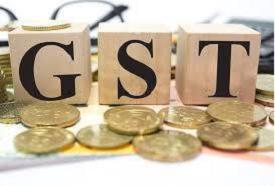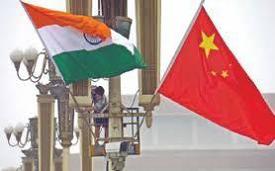Current Affairs January 2020 - Economic
1 - GST revenue collection increased by 16% in December 2019

The GST revenues during the month of December 2019 from domestic transactions, has shown an impressive growth of 16% over the revenue during the month of December, 2018. If IGST collected from imports are considered, the total revenue during December 2019 has increased by 9% in comparison to the revenue during December, 2018.
The government has settled ₹ 21,814 crore to CGST and ₹ 15,366 crore to SGST from IGST as regular settlement. The total revenue earned by Central Government and the State Governments after regular settlement in the month of December 2019 is ₹ 41,776 crore for CGST and ₹ 42,158 crore for the SGST.
2 - Rabi crops sowing area increased by 36 lakh hectares

Rabi crops sowing area increased by around 36 lakh hectares in December 2019. The total area sown under Rabi crops stands at over 571 lakh hectares as compared to 536 lakh hectare. The progress in Rabi sowing has picked up significantly with the improvement of soil moisture in almost all Rabi growing states.
The wheat has been sown in over 297 lakh hectare which is about 27 lakh hectare more than 2018. The Rice has been sown in around 14 lakh hectare and Pulses in over 140 lakh hectare.
3 - IGST refunds of Rs 1,12,000 crore paid to exporters

Central Board of Indirect Taxes and Customs, CBIC unveiled that over 1,12,000 crore rupees have been paid as Integrated Goods and Services Tax-IGST refunds to exporters and over 83,000 exporters have been benefited by these refunds. Refunds of only 3,604 crores are pending with Customs.
CBIC used data analytics to identify risky exporter entities that take input tax credit fraudulently and monetize it by paying IGST and taking refund. Such exporters are being subject to KYC and verification process before the grant of refund.
4 - India likely to surpass Germany to become the fourth-largest economy in 2026

India will overtake Germany to become fourth-largest economy in the world by the year 2026. UK-based Centre for Economics and Business Research (CEBR) titled 'World Economic League Table 2020' report unveiled that India is all set to overtake Japan to become the third-largest economy by 2034. India has decisively overtaken both France and the UK to become the world's fifth-largest economy in 2019.
The World Economic League Table is an annual calculation by CEBR jointly published by CEBR and Global Construction Perspectives. The base data for 2019 is taken from the IMF World Economic Outlook.
5 - India's Forex reserves touch all time high of 457.468 billion

India's foreign exchange reserves increased by 2.520 billion USD to touch a record high of 457.468 billion USD. Foreign currency assets, a major part of the overall reserves rose by 2.203 billion USD to 424.936 billion USD. The reserves had surged by 456 million USD to end at 454.948 billion USD. Gold reserves increased by 260 million USD to end at 27.392 billion USD.
India's special drawing rights with the International Monetary Fund, however dipped by 2 million USD to 1.441 billion USD, while the country's reserve position increased by 58 million USD to 3.7 billion USD.
6 - Indian government signed MoU with Flipkart under DAY-NULM scheme

Flipkart, India’s leading e-commerce marketplace partnered with the Deendayal Antyodaya Yojana - National Urban Livelihoods Mission (DAY-NULM) under the Ministry of Housing and Urban Affairs, Government of India, to empower skilled yet underserved sections of society by inducting them into e-commerce.
Under the MoU, Flipkart will establish the Flipkart Samarth program in 22 states. Flipkart and the State missions will work with self help groups (SHGs), including local artisans, weavers and crafts producers to provide them market access. This partnership will increase business and trade opportunities for micro, small and medium enterprises.
7 - Finance Minister announced 102 lakh crore rupees project

Finance Minister Sitharaman announced investment of Rs 102 lakh crore of infra projects for nextfive years spread across 23 ministries, 18 states and union territories. A task force was formed to identify projects which identified Rs 102 lakh crore worth of projects after conducting 70 stakeholder consultations. India's first National Infrastructure Pipeline (NIP) is also a part of such project.
A total of 51 lakh crores that is about 5-6 per cent of the GDP has been spent on infrastructure in the last six years by Centre and states.
8 - NSO estimates India's GDP growth rate for 2019-20 at 5%

According to the first advanced estimates of the national income released by National Statistical Office (NSO), the Indian economy is estimated to grow at 5% in 2019-20 as against 6.8% in the previous fiscal. The decline has been mainly on account of deceleration in manufacturing sector growth, which is expected to come down to 2% in 2019-20 from 6.2% in the year-ago fiscal.
The construction sector growth is estimated at 3.2% as against 8.7% in 2018-19. The previous low in economic growth was recorded at 3.1% in 2008-09.
9 - First Advance Estimates of National Income, 2019-20

The National Statistical Office (NSO) has released the First Advance Estimates of National Income at both Constant (2011-12) and Current Prices, for the financial year 2019-20.
The highlights are:
The growth in real GDP during 2019-20 is estimated at 5.0% as compared to the growth rate of 6.8% in 2018-19.
GDP at Constant Prices (2011-12) in the year 2019-20 is likely to attain a level of ₹147.79 lakh crore.
GDP at Current Prices in the year 2019-20 is likely to attain a level of ₹204.42 lakh crore.
The Per Capita Net National Income during 2019-20 is estimated to be ₹1,35,050 showing a rise of 6.8%.
The Per Capita Income in real terms (at 2011-12 prices) during 2019-20 is likely to attain a level of ₹96,563.
10 - Adani Ports to acquire 75% stake in Krishnapatnam Port

Adani Ports and Special Economic Zone (APSEZ) announced acquisition of 75% stake in Andhra Pradesh-based Krishnapatnam Port Company for an enterprise value of Rs 13,572 crore. APSEZ is one of the country’s largest private port operators.
The Krishnapatnam Port is located in southern Andhra Pradesh and is a multi-cargo facility. It handled 54 million tonnes (mt) of cargo in the year ended 31 March 2019. The purchase will accelerate Adani Ports’ plan to expand its cargo-handling capacity to 400mt by 2025.
11 - Uber partners with Hyundai on electric air taxi

Uber has teamed up with Hyundai Motor to develop electric air taxis. Uber plans to launch Uber Air by 2023. Hyundai will produce and deploy the vehicles while Uber will provide aerial ride-share services.
Global players like Germany's Daimler, China's Geely Automobile and Japan's Toyota have all unveiled investments in start-ups that aim to deploy electric flying cars capable of vertical takeoff and landing.
12 - Industrial output turns positive on account of growth in manufacturing sector

The industrial output grew 1.8% in November 2019, turning positive after three months of contraction, on account of growth in the manufacturing sector. The growth in the manufacturing sector was 2.7% as against a contraction of 0.7% in November 2018.
The Index of Industrial Production (IIP) had grown by 0.2% in November 2018. The IIP growth during April-November period of the current fiscal came in at 0.6%, down from 5% in the same period of 2018-19.
13 - CCEA approved strategic disinvestment of 49.78% equity shareholding of MMTC

The Cabinet Committee on Economic Affairs approved strategic disinvestment of 49.78% equity shareholding of Minerals and Metals Trading Corporation Limited and 10.10% of National Mineral Development Corporation.
The CCEA gave approval for strategic disinvestment of 0.68% of MECON and Bharat Heavy Electricals Limited each. 12% disinvestment in Industrial Promotion and Investment Corporation of Odisha Limited and 20.47% in Odisha Mining Corporation was also approved. The proposed strategic disinvestment of Neelachal Ispat Nigam Limited will unlock resources to be used to finance the social sector and developmental programmes of the Government benefiting the public.
14 - Deutsche Bank projects India’s economy to reach $7 trillion by 2030

Deutsche Bank projected Indian economy to achieve $7 trillion by 2030 in its research report titled as "Imagine 2030".
Key findings of the report are:
India will grow with the Nominal GDP growth rate of just over 10% in the next decade.
India will become the world’s third largest economy by 2030.
Reserve Bank of India’s decision to cut the key lending rate by 135 basis points in 2019 will revive growth.
GST will expedite formalisation of the economy and improve the fiscal growth of the country.
15 - Retail inflation at 5-yr high of 7.35% in Dec 2019

Retail inflation rose to about five-and-half year high of 7.35% in December 2019, surpassing the RBI's comfort level, mainly due to rise in prices of vegetables. As per the data released by National Statistical Office (NSO), the spike in inflation in the vegetable segment was 60.5% during the month compared to December 2018.
The overall retail inflation based on Consumer Price Index (CPI) was 2.11% in December 2018 and 5.54% in November 2019.
16 - WPI surged to 2.59% in December 2019

Wholesale prices based inflation surged to 2.59% in December 2019, as against 0.58% in November due to increase in prices of food articles like onion and potato. The annual inflation, based on the monthly wholesale price index (WPI), was at 3.46% during December 2018.
The rate of price rise for food articles rose to 13.12% during December 2019 as against 11% a month earlier, while for non-food articles it rose to 7.72% from 1.93% in November.
17 - India China bilateral trade continues to make steady growth in 2019

India China bilateral trade has continued to make steady growth in 2019. China-India bilateral trade stood at 639.52 billion yuan in 2019 which is 1.6% increase year on year. However, in US dollar terms, it has dipped by 3 billion US dollars as compared to 2018 as overall global trade was moderated in 2019.
Bilateral trade is projected to be about 92.68 billion dollars in 2019 while it was 95.7 billion US dollars in 2018, a record high till now. India’s Trade deficit with China also declined to about USD 56.77 billion in 2019 as compared to about 58 billion USD in 2018.
18 - Infosys inked with GEFCO to strengthen Digital Transformation

Infosys partnered with GEFCO, a world leader in multimodal supply chain solutions and the European leader in automotive logistics, to support its digital transformation over the next five years. Infosys will help transform the group’s next-generation business application management services.
Infosys will also leverage its Live Enterprise Suite to help GEFCO evolve into a ‘Digital Native’ organization. The end objective is to help GEFCO create new sustainable sources of competitive advantage and continuously improve value for its customers.
19 - India to get USD 1 billion investment from e-commerce company Amazon

Amazon.com Inc chief Jeff Bezos announced to invest USD 1 billion (over Rs 7,000 crore) investment in India to help bring small and medium enterprises online, digitize them and committed to exporting USD 10 billion worth of India-made goods by 2025.
The investment is done with an aim to clarify allegations of deep discounts. Competition Commission of India launched a probe into Amazon and Flipkart to look at allegations of deep discounts and whether the companies discriminate against small sellers.
20 - UN lowered India’s growth forecast for FY20 to 5.7%

The United Nations lowered India's growth forecast for FY20 to 5.7% from 7.6% in its World Economic Situation and Prospects (WESP) 2020 report.
Key findings are:
In China, GDP growth is projected to 6% in 2020 and 5.9% in 2021.
Global growth would slow to 1.8% in FY 20.
Prolonged weakness in global economic activity may cause significant setbacks for sustainable development.
East Asia remains the world's fastest-growing region.
In the European Union, GDP growth will rise from 1.4 percent in 2019 to 1.6 percent in 2020.
21 - IMF lowered India’s 2019 growth forecast to 4.8% from 6.1%

International Monetary Fund slashed its estimate on India's 2019 economic growth to 4.8% from the 6.1%, due to slowdown in local demand and stress in the non-bank financial sector. It has estimated the economy to grow by 6.5 per cent in 2021-22 which is 0.9 percentage point lower than earlier projections.
Key findings are:
World economic growth is estimated at 1.9% for 2019.
Global economy to grow by 3.3% in FY 20.
The downward revision primarily reflects negative surprises to economic activity in a few emerging market economies, notably India.
22 - Adani Capital acquired Essel Finance’s MSME lending business

Adani Capital, the non-banking financial company (NBFC) arm of Adani Group acquired Essel Finance's MSME loan business to focus on small and micro-entrepreneurs. Through the acquisition, Adani Capital has secured a loan book of around Rs 145 crore.
The acquisition is aimed at secured lending focused on income-generating borrowers. Adani Capital is a 100 per cent subsidiary of AdaniFinserve Private Limited, the holding company of AdaniGroup''s financial services business.
23 - Government approved up to 100% FDI in Bharti Airtel

The Department of Telecom (DoT) has approved raising of foreign direct investment (FDI) in Bharti Airtel to 100 per cent from 49 per cent allowed previously. The approval will enable Bharti Airtel company to raise more funds as per its requirement.
Bharti Airtel has already received nod of the RBI that allowed foreign investors to hold up to 74% stake in the company. With this approval Bharti Airtel can get the infusion of Rs 4,900 crore investment from Singapore-based Singtel and other foreign entities.
24 - Zomato acquired Uber Eats business in India

Zomato acquired the Indian operations of Uber Eats, the food delivery biz run by Uber, for around $350 million. Uber Eats is an Uber Technologies Inc’s food delivery business in India. The deals provide Uber with the 9.99% ownership in Zomato after the acquisition. Zomato will have a 55% share of the food delivery market.
With this acquisition, the deal marked the first big consolidation move in the cash-intensive online food-delivery market.
25 - Forex reserves rise to 462.16 bn in the week ended Jan 17

The country's foreign exchange reserves rose 943 million US Dollars to touch a life-time high of 462.16 billion US Dollars in the week ended January 17. The rise in reserves was mainly on account of an increase in foreign currency assets, which rose by 867 million US Dollars to 428.45 billion US Dollars.
In the reporting week, gold reserves increased 70 million US Dollars to 28.56 billion US Dollars. The special drawing rights with the International Monetary Fund (IMF) were up by 3 million US Dollars to 1.45 billion US Dollars. The country's reserve position with the IMF rose by 3 million US Dollars to 3.70 billion US Dollars.
26 - India-Brazil set target of USD 15 billion trade by 2022

India and Brazil set a target of USD 15 billion in bilateral trade by 2022. Both the nations drew up an ambitious plan to expand cooperation in oil, gas and minerals sectors. The decision was taken during talks between Prime Minister Narendra Modi and Brazilian President Jair Messias Bolsonaro.
The volume of bilateral trade in 2018-10 was USD 8.2 billion which included USD 3.8 billion worth of Indian exports to Brazil and USD 4.4 million as imports by India.




























